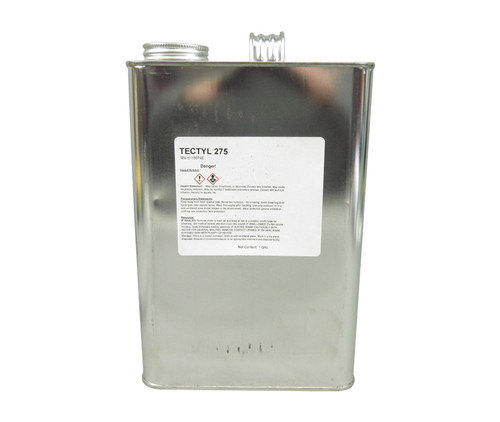Approvals and Conformities
Product Attributes
 Country of Origin
Country of Origin
Surface Preparation
The maximum performance of TECTYL 275 can be achieved only when the metal surfaces to be protected are clean, dry and free of rust, oil and mill scale. Daubert Chemical Company recommends that the metal substrate temperature be 50-95°F(10-35°C) at the time of product application.
Application
TECTYL 275 is formulated to be used as supplied. Ensure uniform consistency prior to use. Continued stirring is generally not required. If the product thickens due to cold storage or loss of solvent during use, contact Daubert Chemical Company. DO NOT THIN TECTYL 275. Incorrect thinning will affect film build, dry time and product performance. Daubert Chemical Company recommends that the ambient and product temperature be 50-95°F(10-35°C) at time of application. TECTYL 275 can be spray or dip applied.
Removal
TECTYL 275 can be removed with TECTYL HPS solvent borne thinner, vapor degreasing, hot alkaline wash, or low pressure steam. TECTYL 275 can be removed from fabrics by normal dry cleaning procedures. Avoid the use of chlorinated or highly aromatic solvents when removing from painted surfaces, as these solvents may adversely affect paint.




 INTERNATIONAL SHIPPING
INTERNATIONAL SHIPPING
